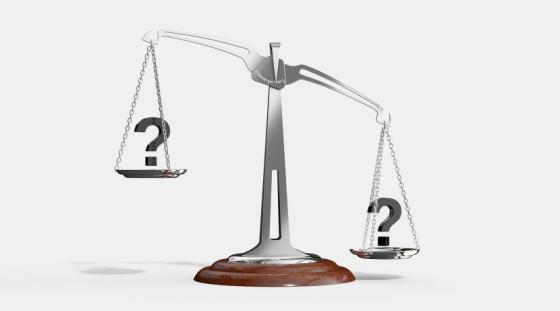Liberia: Morality not Neutrality

Togba-Nah Tipoteh: With morality, a person is engaged in Truth Telling. Neutrality, for example, is important in the cases of voting and sporting, like football.
Life is about making choices. In the midst of the choice between the good and the bad, the way forward for the better is choosing the good over the bad, the right over the wrong. What is good helps others, especially poor people, to help themselves in their struggle to get improved living conditions sustainably.
Whenever a person sees a bad thing happening and stands by doing nothing, the person is, in fact, promoting the bad thing. For example, if a person were to stand by while his mother is being killed, the person is, in fact, supporting the killing of his or her mother. This person is promoting neutrality over morality, bad over good.
Morality, the choice of what is good, comes from a person's background, set by the person's ancestors. With morality, a person is engaged in Truth-Telling. Neutrality, for example, is important in the cases of voting and sporting, like football. The powers that be should not tell voters how to vote or give voters money to vote. The referee should not choose the winner or loser in a football match or in any other sporting competition. Some powers that be and referees are money-driven, meaning that they make the choices that the persons who gave them the money want them to make. Some religious and political leaders are also money-driven.
There is much talk about morality now because a religious leader who has become a big national religious leader was a candidate for a political party in elections. This situation is not new in Liberia because a big national religious leader, a Bishop, served as Vice President of Liberia. According to the Constitution of Liberia, any person of legal age can be a candidate in any election to hold public office. Any fair election falls within the realm of Democracy, where the Will of the People prevails. The Will of the People is the Will of Our Creator, vox populi, vox Dei, as found in Latin, the language of Rome, Italy. But the Constitution of Liberia promotes Truth Telling, Morality over Neutrality, in the choice between the good and the bad, except in such cases as voting and sporting, where the referee should not choose sides.
Let us recall some examples of making choices between the good and the bad, the right direction and the wrong direction. When Archbishop Michael Kpakala Francis served as President of the Inter-Religious Council of Liberia (IRCL), the Council worked in the right direction to the extent that it was awarded the world's highest prize for Religious Harmony. The IRCL followed the Will of the People of Liberia, promoting Peace instead of War. The IRCL even offered to settle the religious disharmony in Nigeria, not forgetting the enormous efforts made by the IRCL to end the Civil War in Liberia.
In the direction of preventing the recurrence of the Civil War in Liberia, some Liberians accepted to do a Report on the Suffering of the People of Liberia, commissioned by the Churches of Liberia. Your Humble Servant chaired the Churches’ Commission, as appointed in July 2019. The Report of the Commission was presented at the Liberia Council of Churches (LCC) National Assembly in late 2019, with the President of the Council of Churches of the United States of America (USA) as Keynote Speaker and the Representative of the World Council of Churches as the Special Guest. Up to now, the LCC has not taken ownership of the Report, which presented solutions to the suffering problem.
In trying to find out the reason for the failure of the LCC to take ownership of the Report, the fact came out that some member churches of the LCC were engaged in corruption and could not speak Truth to Power. For example, one local Church had US$80,000 disappear from the Pastor's office and US$285,000 to disappear from the Bishop's office. No wonder, they could not speak Truth to Power. They could not Walk The Talk! Can the new leadership of the LCC Walk The Talk? Does the new leadership of the LCC have a record of being able to Walk The Talk?
To Walk The Talk, the Tipoteh versus Korkoya Case was taken to the Supreme Court of Liberia over two years ago to show that the National Elections Commission (NEC) of Liberia was operating in ways that violate the Constitution of Liberia. The Supreme Court has said that it is not prepared to issue a ruling on the Tipoteh versus Korkoya Case. Not a single national religious, political, civil society, business, or government leader has given support to the Tipoteh versus Korkoya Case. The Case is most important because if NEC does not operate fairly, it becomes impossible for any good person to be elected to any public office. When there are no good persons in public service, good actions, the right direction cannot be the order of the day. It is only through the transformation of the UNFAIR electoral system to the FAIR electoral system that good persons can get elected to get Liberia moving in the right direction.

